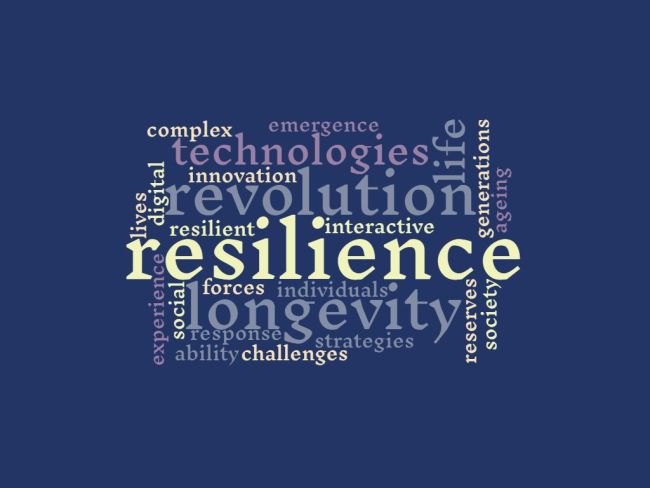5th April 2017
The 5th International Longevity Forum will focus on resilience in a long-lived world that is increasingly being defined by an exciting but bewildering fusion of new technologies across the digital, physical and biological domains accompanied by widespread cultural and economic dislocation.

National and international speakers will present their research, experience and reflections. Attention will be given to strategies that strengthen physical, social and mental well-being throughout the life course. The 5th International Forum will take place in Rio de Janeiro on October 19th and 20th 2017. It is organized by ILC-Brazil, with support by Bradesco Seguros.
The theme of ILC-Brazil’s 5th International Longevity Forum will be resilience and will take place on October 19th and 20th, 2017. The main sponsor is one of Brazil’s biggest insurance providers, Bradesco Seguros.
Any sudden, highly impactful event that forces inexorable change upon society is a revolution. We are being impacted by two unprecedented and concurrent revolutions today – the Longevity Revolution and the Fourth Industrial Revolution.
Longevity Revolution
The world’s population is rapidly ageing. From 2000 to 2050, the number of people aged 60 years and older is expected to triple, from 600 million to 2 billion. By 2050, it is predicted that about 22% of the world’s population will be aged 60 years or older. This is the “Longevity Revolution (The Longevity Revolution; creating a society for all ages, Alexandre Kalache 2013).
Fourth Industrial Revolution
The Fourth Industrial Revolution is “the inexorable shift from the simple digitalization that characterized the Third Industrial Revolution to a much more complex form of innovation based on the combination of multiple technologies in novel ways” (Klaus Schwab, Founder/Executive Chairman of the World Economic Forum)
Longer lives will increasingly be experienced in the context of the rapid emergence of more and more new, highly interactive technologies. The ability to respond to both these revolutions is a privilege given to current generations. A large part of that response will require the construction of a much more resilient society. All individuals, in order to age well, must develop the necessary reserves to adapt, to identify/access support and to grow from the challenges encountered throughout life.
The 5th International Longevity Forum will focus on resilience in a long-lived world that is increasingly being defined by an exciting but bewildering fusion of new technologies across the digital, physical and biological domains accompanied by widespread cultural and economic dislocation. National and international speakers will present their research, experience and reflections. Attention will be given to strategies that strengthen physical, social and mental well-being throughout the life course.
Written by Ina Voelcker, Technical director of International Longevity Centre Brazil
Dynamic knowledge synthesis in local networks for coherent elderly care
We are getting older and more diverse, and that brings challenges. We cannot solve these challenges through healthcare alone. We also need municipalities, schools, companies, housing associations and older people themselves to achieve an age-friendly society. This requires cross-domain collaboration. But how can we achieve that?
25 April 2024
Event summary – Healthy ageing and longevity in Europe: How do we prepare for the 100-year life?
In partnership with ILC-UK, the ILC Europe Network hosted its inaugural conference in Brussels on 6 March 2024 to explore the challenges and opportunities associated with an ageing European society. Other ILC Global Alliance members in attendance included ILC-Czech Republic, ILC-France and ILC-Netherlands.
March 2024
White paper Arts in Health in the Netherlands: Art deserves a prominent place in healthcare
Much more attention needs to be paid to the positive effects of the use of art in healthcare. Art makes people feel better and helps them to better cope with their illness. Art can also mean a lot in the social domain and prevention, and in shortening hospital admissions.
February 2024


